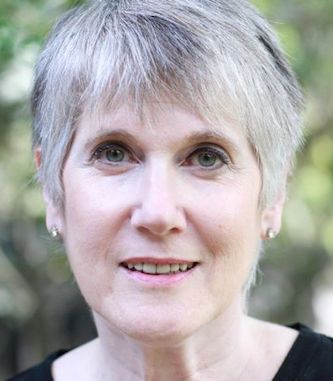Rabbi Hazzan Gabrielle Pescador

My decision to join the cantorial track of the ALEPH Ordination Program unfolded over time. After years of silent prayer practice, I initially found all the singing and wordiness of the liturgy in services to be somewhat distracting; I craved the spaciousness of silence. In fulfilling the DLTI (Davennen’ Leadership Training Institute) requirement for my rabbinic studies, however, my attitude started to shift upon being “re-introduced” to Ashkenazi nusach (traditional liturgical music). I had never heard the term nusach before but certainly recognized the sacredness of the sound. I felt it in my bones and was reminded of my childhood synagogue and the soulful, lamenting voice of Cantor Saul Nadvan z”l, who radiated and transmitted light waves of liturgy that captivated my soul. In the DLTI nusach workshop, Hazzan Jack Kessler helped me to reconnect to the potency and timelessness of that childhood experience.
I began to wonder what it would be like to allow that music to come out of my body, from deep within my kishkes, and beam it outward, and not just receive it in the pew. In that imaginary state, my relationship to the liturgy and davening shifted. The words and phrases became more animated and energized.
And then a crazy thing happened. I saw a job posting on the student listserv for a High Holy Days cantorial soloist for a synagogue in my community, and immediately wrote a letter to the rabbi in charge to apply for the job. Having practically no experience, I shared personal details: how influential my childhood cantor was in my life, my yearning to serve as shaliach tziboor and the fact that Yom Kippur is my Hebrew birthday. To my surprise the rabbi responded the next day, asked me to chant some nusach and hired me, just like that.
Then the real work began. I studied the machzor and the High Holy Days nusach, wrote kavanot and practiced – a lot. In that intense process of preparation, I discovered that I was constantly davening. “Practicing” became a mantra-like experience and brought me deeper into prayer and closer to the responsibility of cantorial leadership. I had found my calling.
Since that remarkable opportunity, I have been leading services regularly and teaching pathways to Jewish spiritual practice through music and sacred text. I have also stepped into the role as spiritual leader of a Reform temple in northern Michigan.
My greatest heart’s desire is to help people turn to God and their hearts within spiritual community and recognize that we are all vessels of love, interconnected and held in an infinitely expansive sukkah of peace and wholeness. I believe that the weaving together of our sacred music and liturgy helps us come closer to that awareness.
I thank my teachers and classmates for guiding me on this journey, and am forever grateful and indebted to my beloved Javier who encouraged me to follow my calling even before I recognized what I was yearning for.
